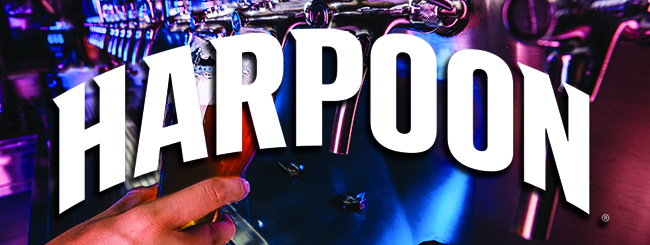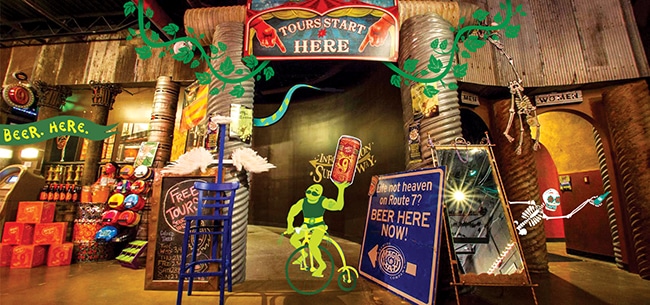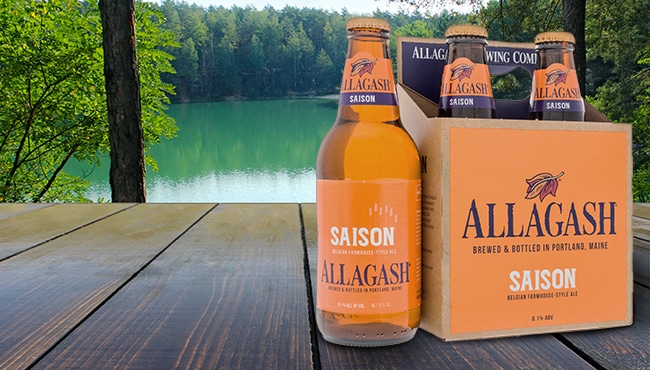Brewscape: The Latest Craft Beer Brand News
Mass. Bay Brewing Sells Brand Rights in Boston to Burke Distributing
Harpoon Brewery parent company Mass. Bay Brewing has disbanded its distribution arm and sold the rights to sell its products in the Boston area to Burke Distributing.
“Boston accounts for a disproportionate amount of our business,” co-founder and CEO Dan Kenary said. “Our business — and our industry to some extent — has changed a lot, and so for us, the economics of it became more difficult. As the number of SKUs increased dramatically, it became less profitable.”
Mass. Bay launched Harpoon Distributing in 2002, when the company’s portfolio included just the Harpoon and UFO brands. Now, the company produces those brands plus Clown Shoes beer, Arctic Summer hard seltzer and City Roots cider.
“We need to concentrate on making great beer, seltzer and cider and marketing and selling it well,” Kenary said. “Our ability to deliver a keg economically to Dorchester or Beacon Hill and collecting a check — that’s not strategic for us anymore. There are other people that do that much, much better than we do.”
With the dissolution of Harpoon Distributing, the company laid off nearly 20 employees on June 11. However, Burke and other Massachusetts beer wholesalers have shown interest in hiring the affected employees, Kenary said.
Burke began delivering Mass. Bay Brewing products on June 22.
Boston was the only market in which Mass. Bay Brewing self-distributes. The Boston metro area that Burke serves accounts for about 20% of Mass. Bay’s volume. In 2019, the company sold 174,900 barrels in 31 states. That translates to almost 35,000 barrels — or 482,222 case equivalents — of beer moving into Burke’s warehouse.
Magic Hat Exits Vermont Brewery, Production to Move to New York
A pioneer of the Vermont craft beer industry will no longer have a physical presence in the state. Magic Hat Brewing, now owned by Rochester, New York-based FIFCO USA, will vacate its brewery and performing arts center, called “The Artifactory,” in South Burlington, Vermont, in July.
Burlington, Vermont-based Zero Gravity Craft Brewery has agreed to purchase Magic Hat’s brewing equipment and take over its lease, pending federal permitting approval.
“Our ties to Burlington made this decision very difficult,” FIFCO USA CEO Rich Andrews said in a press release. “In the end, this was the best long-term opportunity for both us and our friends at Zero Gravity.”
Production of Magic Hat will shift to FIFCO USA’s Genesee Brew House in Rochester, New York, where some packages of flagship #9 and other Magic Hat offerings are already being produced.
FIFCO USA laid off all 43 Vermont-based Magic Hat employees, who will each receive a severance pay. Those workers will also be considered for open positions with Zero Gravity.
Magic Hat was founded by Alan Newman and Bob Johnson in 1994. The company acquired Seattle-based Pyramid Brewing in 2008, and North American Breweries acquired the rollup — which at the time included Magic Hat, Pyramid and Portland, Oregon-based MacTarnahan’s — in 2010.
Allagash to Add Sparkling Session Ale Line, Stout
Allagash Brewing is planning to roll out several years worth of innovations over the next three months, founder Rob Tod revealed.
“We’re taking what was initially going to be a two- to three- to four-year effort and strategy and we’re going to compress it into three months,” he explained.
The Portland, Maine-headquartered craft brewery’s business is heavily skewed toward on-premise sales, with about 70% of its volume flowing through bars and restaurants. The COVID-19 pandemic, which forced virtually the entire on-premise channel to close nationwide, added urgency to Allagash’s innovation push.
The company’s plan is to launch two new year-round products: a stout called North Sky and a line of low-calorie, low-alcohol “sparkling session ales” made with fruit called Little Grove by Allagash. The company will also release its flagship Allagash White for the first time in 6-packs of 12 oz. bottles.
Little Grove by Allagash will come in two iterations — peach and kombucha and blackcurrants — and will be sold in 6-packs of 12 oz. cans with a suggested retail price of $12.99. Both offerings check in at 3.6% and 3.8% ABV, respectively, with 100-calories per can.
“There is a big market out there right now for lower alcohol, lower calorie fruited beverages, and we think that these beers are going to appeal to our existing drinkership, as well as a lot of new consumers,” director of sales Naomi Neville said. “We are going to bring more people into drinking Allagash — for more people, places and occasions.”
Meanwhile, North Sky, a Belgian-inspired stout at 7.5% ABV, will be sold in 4-packs of 16 oz. cans with a suggested retail price of $13.99. The new brand will also receive a draft release at a later date.
Allagash is targeting a September launch for both new products, with a goal of being included in fall resets. Allagash White 6-packs are also expected to reach store shelves that same month.
Proposed Sale of Kona’s Hawaii Operations Valued at $16 Million
Craft Brew Alliance (CBA) and Anheuser-Busch InBev’s proactive attempt to remove regulatory roadblocks by agreeing to sell off Kona Brewing’s operations in Hawaii will come with a $16 million price tag for prospective buyer PV Brewing Partners.
CBA reached a “membership interest purchase agreement” in early June in which the Portland, Oregon-headquartered craft beer maker will divest from the Kona brand rights in Hawaii, contingent upon the completion of CBA’s merger with A-B, which was agreed upon in November 2019 and is expected to close by the end of 2020.
Under the terms of the deal, PV Brewing will have exclusive rights to Kona in Hawaii only.
Additional details of the transaction were revealed in filings with the U.S. Securities and Exchange Commission. Notably, PV Brewing Partners — the investment firm made up of former A-B president Dave Peacock and Overland Park, Kansas-headquartered family office VantEdge Partners — will pay an initial $5 million in cash upon closing of the A-B and CBA deal and then the remaining $11 million once CBA achieves “certain construction and production milestones” related to Kona’s under-construction 30,000 sq. ft., 100,000-barrel brewery.
Upon closing of the Kona Hawaii deal, CBA and PV Brewing will enter into ancillary agreements, including:
- An intellectual property license agreement for the Kona brand;
- A brewing and packaging agreement in which CBA and affiliated operations will brew, bottle and package certain Kona-branded beers for PV Brewing on a transitional basis;
- A distribution agreement in which PV Brewing will receive sales, promotion and distribution services in Hawaii via wholly owned A-B distributor Anheuser-Busch Sales of Hawaii Inc.
According to the SEC filings, the closing of the Kona deal in Hawaii is scheduled to occur “upon the later of August 3, 2020,” or immediately after, or the following business day after, the closing of CBA’s merger with A-B, or a later date as required by the U.S. Department of Justice.
CBA’s agreement with PV Brewing could also be terminated if the DOJ determines that PV Brewing is “not an acceptable” buyer of Kona in Hawaii, if the purchase agreement is not an acceptable manner of divesting of Kona in Hawaii, or if a divestiture is not an acceptable remedy in order to obtain regulatory clearance of the merger.


Receive your free magazine!
Join thousands of other food and beverage professionals who utilize BevNET Magazine to stay up-to-date on current trends and news within the food and beverage world.
Receive your free copy of the magazine 6x per year in digital or print and utilize insights on consumer behavior, brand growth, category volume, and trend forecasting.
Subscribe


